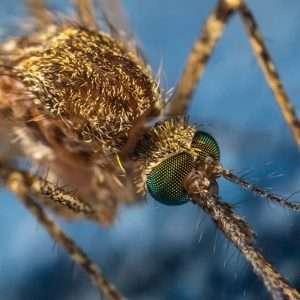Start Your Infected Insect Bites Consultation
Complete a quick and easy questionnaire and one of our prescribers will make sure this treatment is right for you.

4.6/5 Trustpilot Rating

Trusted UK Registered Pharmacy

Takes Under 2 Minutes

Secure and Confidential

Justin Dicks
Superintendent Pharmacist
GPhC Number 2038305
Treatments


Related Medication
Frequently Asked Questions
Have a question? We're here to help
What is an infected insect bite?
An infected insect bite occurs when bacteria enter the skin after a bug bite, causing redness, pain, swelling, or pus. While most bites are harmless and heal quickly, infection can develop if the skin is scratched or irritated. Prompt treatment helps prevent the infection from spreading.
What causes an insect bite to become infected?
Bites can become infected when bacteria, often Staphylococcus aureus or Streptococcus, enter through broken skin. Scratching the bite increases the risk of infection by damaging the skin barrier. Poor hygiene or a weakened immune system can also make infection more likely.
What are the symptoms of an infected insect bite?
The common signs include redness, swelling, warmth, tenderness, and pus at the bite site. You may also experience itching, pain, or the area becoming hard to the touch. In more severe cases, fever or swollen glands can occur, which requires medical attention.
How do you tell if a bite wound is infected?
If the area around the bite becomes increasingly red, hot, painful, or starts producing yellow or green discharge, it may be infected. The skin might also feel firm or tight, and the redness may spread outward. If you notice these symptoms, it’s best to seek treatment.
How to tell if a wound is infected or just irritated?
An irritated bite usually causes mild redness and itching that fades within a few days. An infected wound, on the other hand, tends to worsen over time, becoming more swollen, painful, or oozing. Persistent or spreading redness is a strong indicator of infection.
Can an infected bug bite heal on its own?
Mild infections may sometimes improve with good hygiene and warm compresses, but most require medical attention. If symptoms worsen or don’t improve within a few days, antibiotics such as Flucloxacillin or Clarithromycin may be needed. It’s always safer to have an infection properly assessed by a healthcare professional.
What happens if an infected insect bite is left untreated?
Without treatment, an infection can worsen and spread to surrounding tissue, leading to cellulitis. In rare cases, bacteria can enter the bloodstream and cause serious complications. Early antibiotic treatment helps prevent these risks and speeds up recovery.
Can you get sepsis from an insect bite?
Although uncommon, severe infections from insect bites can lead to sepsis if bacteria spread throughout the body. The signs include fever, confusion, rapid breathing, and extreme pain or swelling. You should seek urgent medical help if you experience these symptoms after a bite.
How long does an infected insect bite take to heal?
With proper antibiotic treatment, most infected bites heal within 7-10 days. More severe infections may take longer, especially if swelling or pus is present. Keeping the area clean and avoiding scratching can help speed up recovery.
How are infected insect bites treated?
The treatment often involves a short course of antibiotics such as Flucloxacillin, Clarithromycin, or Erythromycin to clear the infection. You may also be advised to keep the area clean and apply warm compresses. Over-the-counter pain relief can help reduce discomfort while healing.
How can I prevent insect bites from becoming infected?
Avoid scratching bites and wash them gently with soap and water as soon as possible. Applying an antiseptic cream can help prevent bacteria from entering the wound. If you’re prone to infections, covering the area with a clean dressing may offer extra protection.
How to tell if a bug bite is serious?
A serious bite may cause rapid swelling, spreading redness, severe pain, or systemic symptoms like fever. If the infection worsens despite home care or you feel generally unwell, seek medical advice immediately. Early treatment helps prevent complications.


















